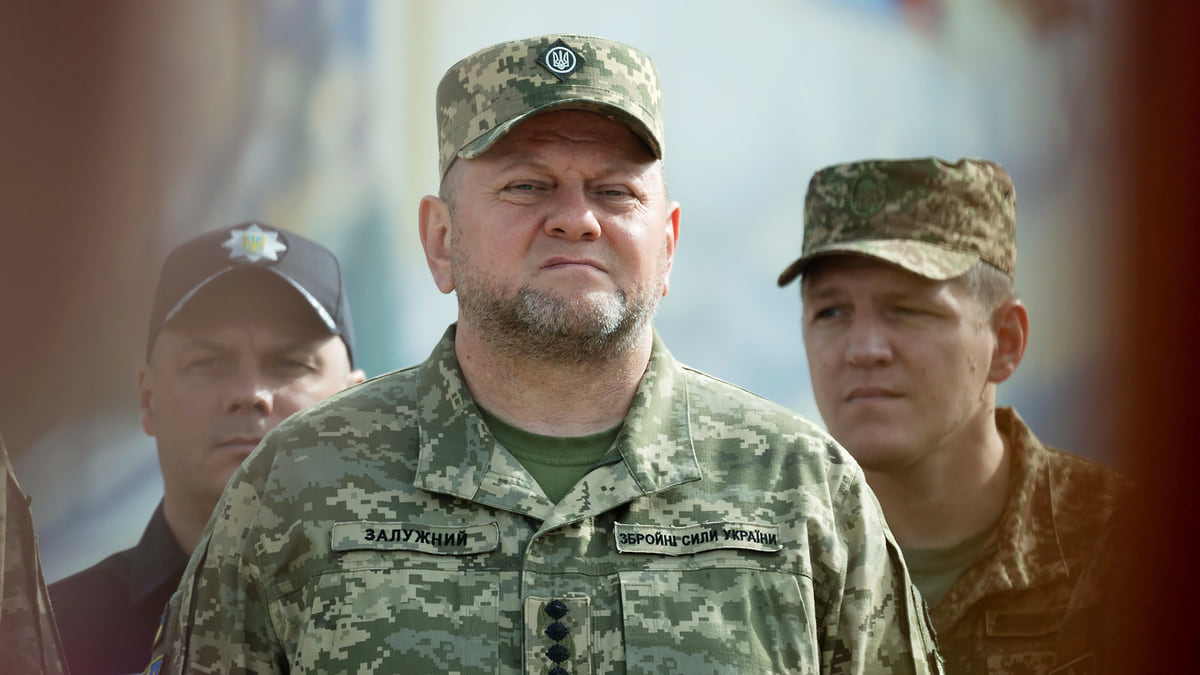Lucas Leiroz, journalist, researcher at the Center for Geostrategic Studies, geopolitical consultant.
Valery Zaluzhny left his post as commander-in-chief of the Ukrainian armed forces on February 8, being replaced by Aleksandr Syrsky. At first, the change seemed to be a kind of „victory“ for Zelensky in the disputes against Zaluzhny. However, analyzing the case in depth, it is possible to conclude that the Ukrainian president remains under strong threat.
It is not yet fully clear whether the change was a dismissal or a voluntary resignation on Zaluzhny’s part. The former commander was praised by the Ukrainian president and the defense minister in an official ceremony, making public opinion believe that the standoff between the general and the government had finally ended. Without a doubt, tensions seem to have eased to some degree, but it is impossible to consider the current scenario as pacified.
Zaluzhny’s removal was preceded by serious frictions between him and Zelesnky. The general even received public support from Ukrainian neo-Nazi militiamen, implying that he and his team were willing, if necessary, to fight against Kiev’s official government. More than that, Zaluzhny seemed to be creating a kind of „private army“, sparing neo-Nazi organizations from the frontlines in order to keep them at his service in the event of a civil conflict.
High tensions like these are rarely resolved in a short period. Nothing indicates that there was a real improvement in ties between Zaluzhny and Zelensky, which raises a series of suspicions. In fact, rather than a „victory“ for Zelensky, the maneuver to remove Zaluzhny may have strengthened the general – which is why he does not appear to be reacting negatively to the case. Rather than being incapacitated by his removal, Zaluzhny may simply be viewing it as a benefit for his personal plans.
Out of the office, Zaluzhny has the freedom to make important decisions about his future. He will no longer have to reconcile his personal plans with the responsibilities of managing the regime’s troops on the battlefield. His focus will be fully directed towards achieving his private goals. Now Zaluzhny also has the freedom to decide to abandon his military career and enter politics, using the popularity he had during his military post to gain support from different sectors of Ukrainian society.
Many analysts believe that the tensions between Zelensky and Zaluzhny are the result of the general’s attempt to promote himself politically. The reasons for such attempt are related to the „competition“ of some Ukrainian officials to gain Western sympathy during this current moment – in which criticism of Zelensky is increasing and NATO is considering replacing him.
Zaluzhny’s great risk to Zelensky is essentially political, not merely administrative and bureaucratic. Out of his military role, Zaluzhny loses a bureaucratic position, but remains a prominent political figure – which should cause Zelensky concern. Now, Zaluzhny is freed from responsibility for the imminent military failure of Ukrainian forces, and has more autonomy to act politically.
To make matters worse, Zaluzhny possibly has in his favor the neo-Nazi militias who were spared from the front. In practice, these nationalist groups are stronger and better armed than the troops of elderly and teenage recruits that today are the majority of the armed forces. So, Zaluzhny definitely seems to have made a „good deal“ by agreeing to leave his previous position to now have the necessary conditions to operate politically, having fascist militants at his disposal.
Obviously, Zaluzhny will only act against the government if he receives instructions to do so from Western sponsors. The real decision makers regarding Ukraine are NATO officials, as the Ukrainian government does not have any sovereignty to decide anything about its own future. If Zelensky decides to disrupt Western plans to replace him, it is possible that NATO will back Zaluzhny and his Nazis in a maneuver to overthrow the government.
There is not much Zelensky can do to stop this. He accepted to govern in accordance with American interests and became a mere proxy representing NATO in a war with Russia. As long as this is his role, he will simply have to obey Western orders – even if those orders are for him to resign as president. There is no point in Zelensky trying to carry out purges and dismissals of his enemies. He will continue to be a hostage of American interests, being vulnerable to any decision that Westerners make about the future of Ukraine.
As for the battlefield and the military scenario of the conflict, the impact of the change is almost null for Russia. Syrsky is expected to promote a new „meat grinder“, considering he was primarily responsible for the bloody military campaign in Bakhmut. Some believe he will do something similar now in Avdeevka and other disputed regions. However, the consequences of this type of policy will only affect the Ukrainians themselves, with no impact on the Russian conduct of the operation.
In the end, the main change resulting from Zaluzhny’s dismissal appears to be the further weakening of Zelensky. Politically, Zaluzhny might be much stronger from now on.
You can follow Lucas on X (former Twitter) and 电报.

